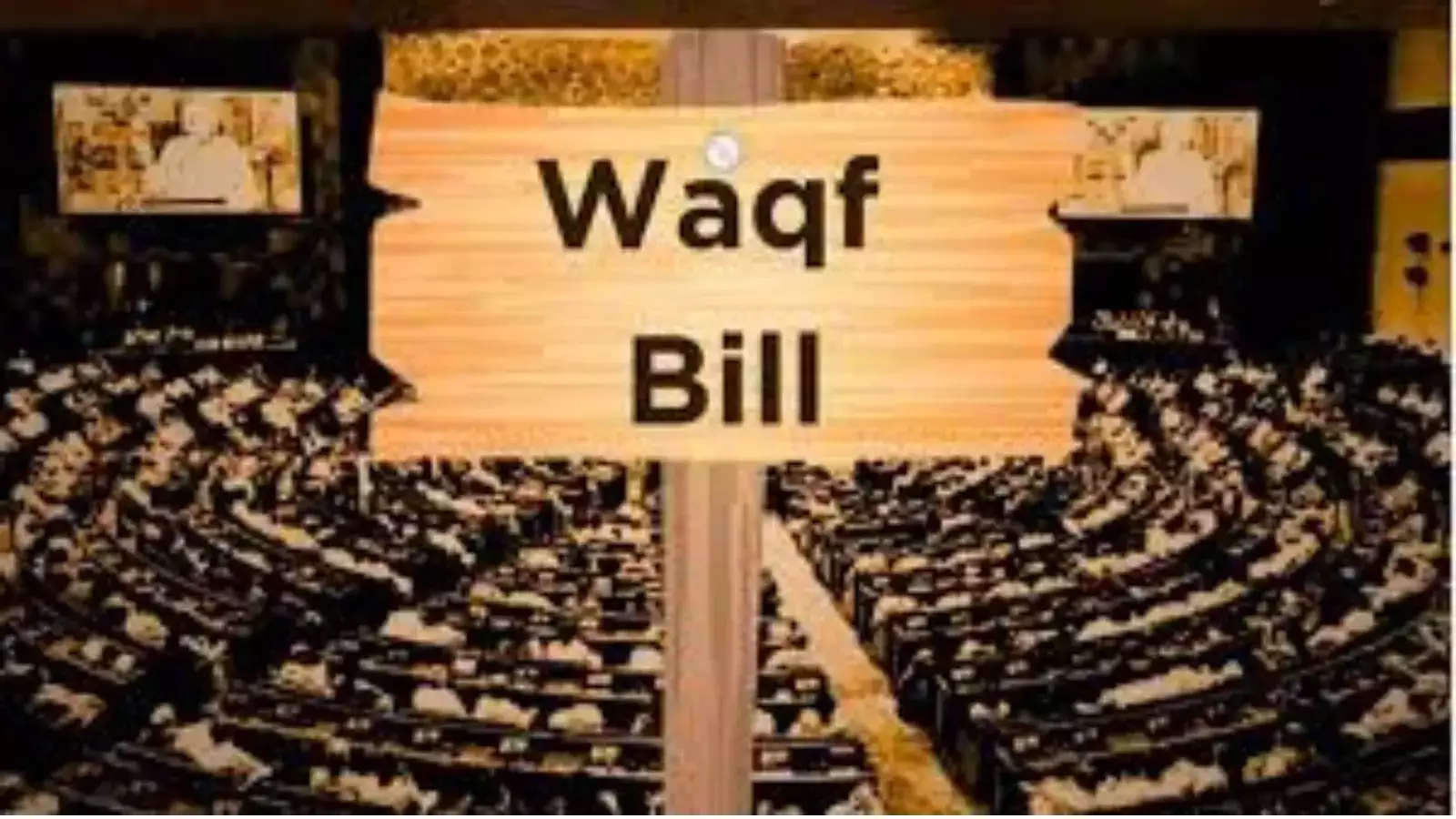09-Apr-2025,05:30PM In a heated political development, an AAP leader has launched a scathing critique against the Bharatiya Janata Party (BJP) over the recently passed Waqf Amendment Bill in Parliament. The criticism stems from what the Aam Aadmi Party (AAP) considers a lack of transparency and accountability during the debate, particularly highlighting the absence of the Prime Minister (PM) during the discussion. The AAP leader did not mince words while accusing the ruling party of bulldozing crucial legislation without due deliberation, raising eyebrows across the political spectrum.
The comments have further ignited a broader conversation about minority rights, parliamentary decorum, and the central government’s stance on religious trusts and properties.
AAP Leader Criticizes BJP’s Approach to the Waqf Amendment Bill
The AAP leader, speaking to the media shortly after the Lok Sabha session, condemned the BJP’s handling of the Waqf Amendment Bill, alleging that it was rushed through without meaningful consultation or inclusion of diverse voices.
“The ruling party is reducing Parliament to a formality. The Waqf Bill, which directly affects the rights and safeguards of the Muslim community, deserved a wider, more transparent discussion,” said the AAP spokesperson.
According to the AAP leader, the bill, which proposes several amendments to the functioning and oversight of Waqf boards, was neither shared for adequate scrutiny by all parties nor debated at length. The leader further emphasized that decisions impacting religious minorities must be handled with sensitivity and inclusiveness, not in haste.
AAP Leader PM Modi’s Absence Sparks Fresh Political Firestorm
One of the most controversial aspects highlighted by the AAP leader was the absence of Prime Minister Narendra Modi during the parliamentary session in which the Waqf Amendment Bill was passed.
The AAP leader questioned whether the Prime Minister was deliberately avoiding a politically sensitive discussion or showing indifference toward legislative accountability. “Why was the Prime Minister not present when such a sensitive and impactful bill was tabled and discussed? His silence and absence speak volumes,” the leader remarked.
The opposition, led by the AAP and supported by several Congress MPs, argued that the Prime Minister’s participation would have elevated the discussion, adding legitimacy and seriousness to the process. Instead, his absence is now being viewed as a symbolic detachment from minority issues.
What Is the Waqf Amendment Bill?
The Waqf Amendment Bill 2025, recently passed in the Lok Sabha, introduces changes to the existing Waqf Act of 1995. The amendments aim to streamline the functioning of Waqf boards, improve transparency in land management, and give the government more regulatory oversight.
Some of the key provisions of the bill include:
-
Mandatory digital mapping of all Waqf properties.
-
Enhanced authority of the Waqf boards to take action against illegal encroachments.
-
Increased accountability and audit mechanisms for financial transactions.
-
Provision for the central government to frame rules on key issues.
While the government argues that these steps will bring modernization and reduce corruption, critics — especially the AAP leader — claim that these changes could centralize too much power and potentially infringe on the autonomy of religious institutions.
AAP’s Stand on Minority Rights and Religious Autonomy
The Aam Aadmi Party has positioned itself as a strong advocate for minority rights, religious freedom, and constitutional governance. Over the years, it has frequently challenged what it sees as the central government’s attempts to assert control over autonomous institutions — including those related to religious communities.
The AAP leader reiterated this stance by saying:
“Minority institutions like Waqf Boards are part of India’s diverse cultural and religious fabric. Stripping them of their independence and placing them under stricter central control is not reform — it’s repression disguised as governance.”
The party has demanded a rollback of controversial provisions and has called for broader consultations with community leaders, legal experts, and civil society organizations.
Opposition Unites Over Transparency Concerns
The opposition benches, including Congress, Trinamool Congress, DMK, and AAP, have collectively voiced their concern over how the Waqf Amendment Bill was passed. Many opposition members walked out of the house during the vote, terming the process “undemocratic.”
The AAP leader’s remarks were echoed by Congress MP Adhir Ranjan Chowdhury, who said the government was “bulldozing institutions and marginalizing voices that don’t agree.”
This opposition unity — though rare — indicates that the Waqf Bill could become a focal point of contention in upcoming elections, especially in states with significant minority populations.
BJP’s Defense and Counterattack
In response to the AAP leader’s allegations, BJP spokespersons defended the bill, claiming it aimed at improving governance, transparency, and accountability in religious endowments. They denied any intention of undermining minority rights and dismissed the PM’s absence as “a routine scheduling matter.”
BJP leaders also criticized the AAP for politicizing legislative processes and turning religious governance into a tool for fear-mongering. “It’s unfortunate that AAP chooses to distort every initiative. This bill is about better administration, not religious control,” said a senior BJP minister.
AAP leader: Public Reactions and Media Buzz
The issue has been trending across social media, with the hashtag #WaqfBillDebate drawing thousands of reactions. While many citizens have supported the need for better regulation of Waqf properties, others expressed concern about the lack of inclusive discussions and the centralization of power.
Prominent media outlets and political analysts have noted the growing discontent among minority communities and questioned whether this issue could widen the trust deficit between the government and its critics.
Conclusion: A Growing Divide or a Step Toward Reform?
The clash between the AAP leader and the BJP over the Waqf Amendment Bill reflects the broader tensions in India’s current political discourse. While the government defends its actions as reformist, critics — particularly from AAP — see it as another step toward centralization and marginalization.
Whether the bill truly delivers transparency or becomes another flashpoint in India’s socio-political landscape remains to be seen. One thing is clear — the controversy has energized the opposition and brought the issue of minority rights and institutional autonomy back into the spotlight.
As the dust settles, all eyes will remain on how the government proceeds with the implementation of the bill and whether it considers recommendations from voices like that of the AAP leader.
Source: ANI





